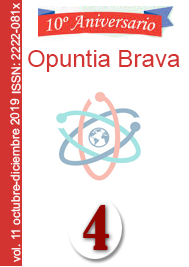Professional ethics and their impact on the administration of telecommunications companies
Keywords:
ethics, administration and companiesAbstract
This research explores the concept of man upon which lie the administrative business quality and professional ethics. Management is a systematic set of rules to achieve maximum efficiency in the ways of structuring and operating a social organism. The work ethic refers to attitudes that we must have time to perform in a job. It follows then, that efficient management is a set of values, norms and principles reflected in the culture of the company, to reach a better understanding with the society, respecting the rights of this, while respecting the needs and rights of the employees. The University should educate future business professionals in the knowledge that the modern management is to focus new and existing reviews that help the humanist society, to seek a favourable development of new tactics that can be apply in different contexts, such as: business, society, education system, religion. It is important to point out that methods or theories of yesterday are important for a modern administration, since these theories play an important role this Administration is to achieve the expected success, without leaving aside the new events that they have happened today, given that his field of study is broad and complex.








.png)



.png)





















